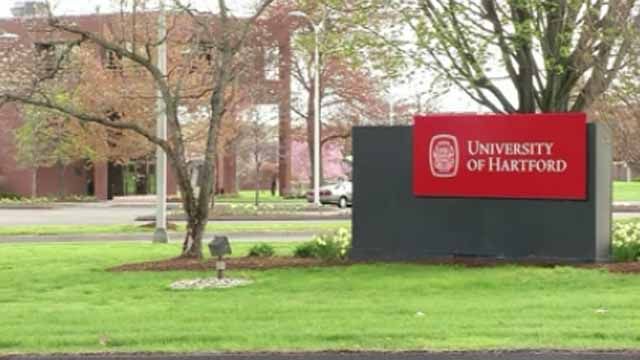Physicist Laurence (Larry) Gould at the University of Hartford (Connecticut) is just finishing up an ambitious full semester course on the climate change debate. His detailed syllabus is available online here and it is a fine model for other colleges to follow.
The focus of the course is the climate debate, not the physics of climate. While Gould is a physicist in the Physics Department, he has a long standing practice in the history and philosophy of science as well. Thus many of the course materials are about how climate alarmism and skepticism are presented and argued. Other materials delve into the nature of science, because that issue flows naturally from the climate debate.
For example, in week 1 (of 14) the students view the first 30 minutes of each of the following videos: (a) An Inconvenient Truth, and (b) The Great Global Warming Swindle. There is probably no more graphic way to frame the debate than this.
The syllabus includes a very good bibliography and as of this writing many of the course materials are available online via the syllabus. There is a lot by skeptics, but a lot not as well. For example there is a link to the essay “What is science” by Helen Quinn. She led the Academy of Sciences group that developed the Framework Document that became the Next Generation Science Standards that have been adopted by many states to govern K-12 science education. These standards promote alarmism.
The course description pretty well defines the broad scope, matching that of the debate:
““The Earth’s surface temperature is increasing dangerously! Rising sea levels could flood cities! The severity of storms is intensifying! Glaciers are melting at an unprecedented rate! Polar bears are threatened! And human beings are to blame because of their activities which emit significant amounts of greenhouse gases.” Such alarming claims are similar to the ones being propagated by various scientists, politicians, and educators as well as by the major news media and in movies.
But how can one find out if the scenarios are true? In considering this problem we will explore the following through the use of videos, handouts, readings, the internet, and class discussions: What is meant by the popular term “anthropogenic global warming/climate change” (AGW, for short)? What are correct and incorrect methods of arguing for the existence of AGW? How can science determine if AGW exists, and (if it does) whether it is dangerous? What are possible ethical, political, and economic issues involved in promoting claims of AGW? This seminar course examines some of the AGW rhetoric and science through an investigation of its proponents’ methods of argumentation as well as of their scientific claims. Given the dominant and widespread promulgation of dangerous AGW claims through both the media and educational institutions, the aim of this seminar is to better prepare students to rationally investigate matters for themselves.”
Gould himself is a well established skeptic of climate change alarmism. In fact he just joined the Academic Advisory Council of the Global Warming Policy Foundation (GWPF), Britain’s leading critic of government policies that are based on alarmism. GWPF itself has a lot of useful educational materials on the climate change debate. Their motto is “Common Sense on Climate Change.”
While the course is not quite over, Gould reports that none of the students were skeptical in the beginning but now almost all are. This is a very promising outcome. We need a lot more courses like this, at a lot more colleges.

Thanks for sharing this Dr. Wojick. You are correct that there should be a lot more courses like this in our universities. They are necessary because today’s college students have grown up being imbued with climate alarmism, which most have accepted, even though the empirical data shows that there has been little actual climate warming during their entire lifetimes. For example, the satellite data shows that there was no warming of the atmosphere since 1997 until the natural warming of the 2015-2016 El Nino.
Students have been taught what to think, but less frequently how to think, ie., critical thinking, recognizing logical fallacies in argumentation, how science is done, etc. Gould’s syllabus is excellent.
Like Dr. Gould, my experience has been that when people are exposed to both the pro-alarmist and skeptical climate views, the majority moves toward the skeptical position.
Education is key!
Teach them to LOOK FOR THEMSELVES.
Teach them to not only question claims made by the media but LOOK AT PAST HISTORY- very often the claim falls flat in a matter of minutes.
The same people who once said ‘don’t trust anyone over 30’ now say ‘DON’T QUESTION US. PERIOD.’
Question everything.
Even though I have earned two Masters degrees, I would still love to audit the course.